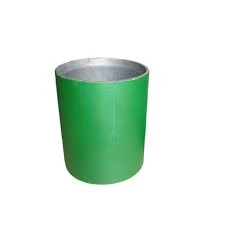- Afrikaans
- Albanian
- Amharic
- Arabic
- Armenian
- Azerbaijani
- Basque
- Belarusian
- Bengali
- Bosnian
- Bulgarian
- Catalan
- Cebuano
- Corsican
- Croatian
- Czech
- Danish
- Dutch
- English
- Esperanto
- Estonian
- Finnish
- French
- Frisian
- Galician
- Georgian
- German
- Greek
- Gujarati
- Haitian Creole
- hausa
- hawaiian
- Hebrew
- Hindi
- Miao
- Hungarian
- Icelandic
- igbo
- Indonesian
- irish
- Italian
- Japanese
- Javanese
- Kannada
- kazakh
- Khmer
- Rwandese
- Korean
- Kurdish
- Kyrgyz
- Lao
- Latin
- Latvian
- Lithuanian
- Luxembourgish
- Macedonian
- Malgashi
- Malay
- Malayalam
- Maltese
- Maori
- Marathi
- Mongolian
- Myanmar
- Nepali
- Norwegian
- Norwegian
- Occitan
- Pashto
- Persian
- Polish
- Portuguese
- Punjabi
- Romanian
- Russian
- Samoan
- Scottish Gaelic
- Serbian
- Sesotho
- Shona
- Sindhi
- Sinhala
- Slovak
- Slovenian
- Somali
- Spanish
- Sundanese
- Swahili
- Swedish
- Tagalog
- Tajik
- Tamil
- Tatar
- Telugu
- Thai
- Turkish
- Turkmen
- Ukrainian
- Urdu
- Uighur
- Uzbek
- Vietnamese
- Welsh
- Bantu
- Yiddish
- Yoruba
- Zulu
API 5CT Casing Coupling Specifications and Applications in Oil and Gas Industry
Understanding API 5CT Casing Couplings Key Elements and Applications
API 5CT casing couplings are critical components in the oil and gas industry, serving as connectors that join lengths of casing pipes during the drilling process. These couplings are standardized by the American Petroleum Institute (API) and are crucial for ensuring the integrity and safety of the wellbore. In this article, we will explore the features, specifications, and applications of API 5CT casing couplings, providing insight into their indispensable role in successful drilling operations.
What is API 5CT?
API 5CT is a specification developed by the American Petroleum Institute that delineates the requirements for casing and tubing used in oil and gas exploration and production. The standard covers various grades and types, which are based on the mechanical properties and intended applications. Casing is essential for maintaining the stability of the wellbore, protecting groundwater, and preventing the collapse of the formation. Couplings, as essential fixtures, play a significant role in connecting these casing pipes.
Design and Specifications
API 5CT casing couplings are typically made from steel that meets specific requirements for strength, durability, and resistance to stress. The couplings must be compatible with the casing pipe grades, which are categorized by their yield strength. Some of the commonly referenced grades include H-40, J-55, K-55, N-80, L-80, and P-110, each designed to endure varying degrees of pressure and environmental conditions.
The design features of API 5CT couplings include particular dimensions, threads, and shapes that ensure a tight seal and reduce the risk of leaks. The most widely used threading types for couplings include the American Petroleum Institute (API) 8 round threads and Buttress threads, which have been optimized for effective performance in high-pressure environments.
Key Advantages of API 5CT Casing Couplings
The use of API 5CT casing couplings offers several advantages
api 5ct casing coupling

1. Compatibility and Standardization One of the primary benefits of API 5CT specifications is that they ensure a uniform standard across different manufacturers, allowing for compatibility and interoperability between various casing and coupling systems.
2. Strength and Durability Designed to withstand high pressures and varying environmental conditions, API 5CT casing couplings provide durable connections that enhance the longevity of the well.
3. Ease of Use The standardized design and threading make these couplings easy to install and replace in the field, reducing downtime and ensuring efficient operations.
4. Leak Prevention The precision engineering of these couplings minimizes the risk of leaks, playing a crucial role in safeguarding the environment and ensuring worker safety.
5. Versatility API 5CT casing couplings are versatile and can be utilized in various applications beyond oil and gas, including water wells and geothermal wells, owing to their robust design.
Applications in the Oil and Gas Industry
In oil and gas operations, API 5CT casing couplings are employed during the drilling process to connect casing pipes at different depths. This is crucial not only for establishing a secure structure but also for allowing the flow of hydrocarbons from the reservoir to the surface. Furthermore, these couplings play a vital role in protecting surrounding areas from potential contamination and ensuring the efficient extraction of resources.
In conclusion, API 5CT casing couplings are essential elements in the oil and gas industry, facilitating safe and effective drilling operations. Their standardization, durability, and compatibility make them indispensable for connecting casing pipes and enhancing the overall integrity of drilling projects. As the demand for energy continues to rise, the importance of reliable and efficient coupling systems like API 5CT will only grow, underscoring the vital role they play in the resource extraction industry.
-
Tubing Pup Joints: Essential Components for Oil and Gas OperationsNewsJul.10,2025
-
Pup Joints: Essential Components for Reliable Drilling OperationsNewsJul.10,2025
-
Pipe Couplings: Connecting Your World EfficientlyNewsJul.10,2025
-
Mastering Oilfield Operations with Quality Tubing and CasingNewsJul.10,2025
-
High-Quality Casing Couplings for Every NeedNewsJul.10,2025
-
Boost Your Drilling Efficiency with Premium Crossover Tools & Seating NipplesNewsJul.10,2025







